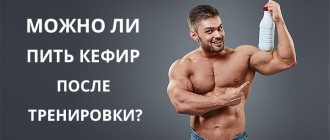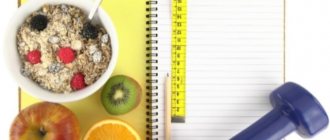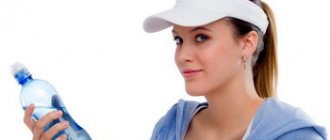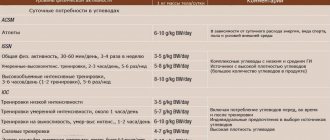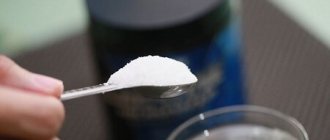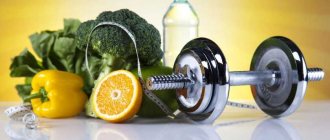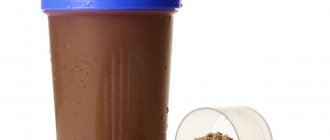For the effective implementation of high-quality training progress, not only regular physical activity is important, but also diet and nutrition. Many athletes are interested in whether it is possible to drink green tea before and after training? Experts give a positive answer to this question: this wonderful drink helps not only replenish energy reserves in the body, but also “supplies” a lot of important vitamins, minerals, and microelements.
Diet before and after training
Today you are going to the gym! Someone anticipates this event and prepares for it in the morning, carefully putting together their uniform, postponing gatherings with friends in a cafe until another day, preparing dinner for the household, and at the end of the working day they quickly turn off the computer and run to the nearest sports club. Another perceives this as a necessity to maintain the image of an active fashionable person or as a habit learned from childhood spent at training camps. But for everyone who has plunged headlong and all other parts of the body into the world of fitness and a healthy lifestyle, the main result is what they see in the mirror after many hours of stepping over the step or swimming in the pool. Unfortunately, the desired effect from training is not always noticeable. After all, many people forget that an active rhythm of life requires a special diet and composition of nutrition.
Pre-workout nutrition
So, in your pre-workout you need to:
Turn on:
Exclude:
- fats (or no more than 3 g).
Carbohydrates
in
pre-workout nutrition are necessary in order to provide the muscles and brain with energy. During exercise, the 'fuel' is burned very quickly, and it is necessary that it be glycogen, since the body cannot supply the required amounts of energy from fat (due to lack of oxygen). Proteins
in the pre-workout diet will not be a source of energy; they are a source of amino acids for working muscles.
As a result, immediately after training, muscle protein synthesis increases sharply. fat
in your pre-workout diet because it slows down your stomach and the speed of digestion. Fatty foods stay in the stomach longer and can cause colic, nausea, and belching during exercise.
Best Pre-Workout Meals:
- poultry (turkey, chicken breasts) with coarse bread or rice; - lean steak with potatoes; - an omelette made from egg whites with oatmeal. The caloric content of food before training should be normal, as at other times. It is better to eat bulk food (a large portion of salad or a bowl of soup) an hour or two before training, so that it has time to be digested and the stomach is empty. More dense food (half a plate of porridge or cottage cheese) can be eaten 30 minutes to an hour before the start of the workout. If you are training to build muscle, then 30 minutes before training, eat one large fruit with a low glycemic index (apple, pear, strawberry or any other berries) and wash it down with a protein drink (preferably whey protein). The protein calculation for this shake is as follows: 0.22 g of whey protein per kilogram of weight. For example, if you weigh 68 kg, then the cocktail (mixed with water) should contain 15 g of protein. Also, 30 minutes before training, drink a glass of strong black coffee (with sweetener, but not cream) or very strong green tea. This will help the secretion of epinephrine and norepinephrine, which mobilize fat from fat cells so that the body can use it as fuel. This way, you will burn more fat and less glucose, glycogen and amino acids during your workout. Fatigue during the training process will come much later. Your head will be clearer and you will be able to train more intensely. The effects of pre-workout coffee last approximately 2 hours. It is better not to eat anything immediately before training, since physical activity distracts from the process of digestion (rhythmic contractions of the stomach to digest food). As a last resort, if you are very hungry, you can drink a glass of protein shake or milk.
Drinking regimen during training
The most important thing during training is to remember to drink! Even with 2% dehydration, training will be sluggish and ineffective. Don't focus on the feeling of thirst. Intense exercise suppresses the thirst receptors in your throat and gastrointestinal tract, so that by the time you get thirsty, your body will already be dehydrated. Additionally, as we age, the body's thirst sensors become less sensitive. Adults need to drink water because they need to, and not because they want to. If you notice symptoms of dehydration (two or more at the same time): - thirst, - dry mouth, - dry or even chapped lips, - dizziness, - fatigue, - headache, - irritability, - lack of appetite, immediately start drinking water and stop exercising for a few minutes until symptoms subside.
Drinking regimen
next: drink a glass of water right before starting your workout and drink a little every 15-20 minutes during exercise. The amount you drink will depend on the amount of sweat. You need to keep your body hydrated and even super hydrated during your workouts. If the workout lasts more than an hour, then it is advisable to drink special sports drinks. About 30-60 g of carbohydrates per hour should be supplied from them with sugars. The body will not absorb more than 60 g of carbohydrates during a workout, and the productivity of the workout may decrease. You should drink high-calorie drinks little by little, sipping every 10 minutes. Sports drinks also contain beneficial electrolytes (salts) that the body loses through sweat and urine. During training, you can also drink fruit juices, preferably freshly squeezed, not store-bought. It's safe to say that all store-bought juices, even those sold as “100% juice with no added sugar,” are diluted with water and contain added sugars. Orange juices most often contain beet sugar, while apple juices contain corn syrup and inulin. The best juice is freshly squeezed orange juice, diluted with water in a 1:1 ratio.
Post-workout nutrition
You should eat immediately after training, preferably within the first 20 minutes. If you abstain from food for 2 hours after the end of the workout, then the workout loses all meaning - as a result, NOTHING TRAINS, a little fat will be burned, and that’s all, but there will be no increase in strength, muscle density, slimness and metabolic rate. In the first 20 minutes after training, the body opens the so-called post-workout (anabolic) window for consuming proteins and carbohydrates (but not fats). Everything that is eaten during this period will be used to restore muscles and increase muscle mass; not a single calorie from food will go to fat. It is very important. Post-workout carbohydrates are best consumed in liquid form from simple, high-glycemic sources. You want to get a spike in insulin levels, with its anabolic and anti-catabolic (helps build lean muscle tissue) properties. Cranberry and grape juice are considered the best because they have a high glucose to fructose ratio. Consume approximately 1 gram of carbohydrates from juice for every kilogram of your IDEAL weight. A glass of grape juice contains 38 g of carbohydrates (155 kcal), and a glass of cranberry juice contains 31 g of carbohydrates (115 kcal). You can also eat any carbohydrate food that does not contain fat (bread, jam, sugar, potatoes, rice, pasta, fruits, vegetables, etc.). In addition, immediately after training you need to load up on proteins. Best in powdered protein drink form. In this way, muscle protein synthesis after training will increase 3 times (compared to fasting). So take a bottle of protein powder and juice shake with you if you're working out outside the home, and drink it all as soon as you stop working out. The amount of protein from the powder should be 0.55 g per kilogram of ideal weight. If you can't drink protein shakes for some reason, rely on egg whites. If you have the opportunity to eat within an hour after training, then choose any protein food, just calculate the required amount of protein. Your dose of protein food can be determined very simply: it should fit in the palm of your hand. Since the post-workout meal has only one important goal - to promote muscle growth as quickly and effectively as possible - this meal should not contain any fat at all.
Fat will slow down the flow of carbohydrates and proteins from the stomach into the blood. Protein foods should be low-fat, i.e. if chicken, then breasts, not legs. If eggs, then only whites. Beef and pork should be avoided as they are always very fatty, give preference to veal. You also need to be careful with cheese, milk, yogurt and cottage cheese - as a rule, they contain at least 5% fat. The only exception is fatty fish (not fried!). You can and should eat it as often as possible. After training, for two hours, it is advisable to exclude everything that contains caffeine: coffee, tea, cocoa and anything chocolate (even chocolate-flavored protein powders). The fact is that caffeine interferes with insulin and thus prevents your body from reloading glycogen into the muscles and liver and using protein for muscle repair. So if you train in the morning, wait 2 hours and then drink real strong coffee. A cup of coffee before your workout should help you stay alert and energized. If you can’t give up coffee or tea at all, choose their decaffinized analogues.
Do you need liquid during training?
In addition to consuming fluids throughout the day, many athletes and fitness enthusiasts are interested in the question of whether it is possible to drink water during sports activities. There is no point in giving exact numbers. After all, the rate of fluid consumption should be individual.
The main thing is to drink as much as you want. Take small sips while doing this. This technique can protect you from the feeling of heaviness in the stomach, which may well arise after drinking a liquid in one gulp.
Water after a workout, including when losing weight, should be clean - without sugar and gas. Some people find that mineral water or sweet juice quenches their thirst better. But this feeling is deceptive.
How to drink water
In order to answer the question, you need to know what kind of fitness you do.
- Cardio. Since pauses between sets should be minimal, it is recommended to keep water near you. You should drink small portions during breaks.
- Power. Take a few sips before warming up, then watch your condition. It is necessary to drink liquid in small portions and only in between exercises. While using some types of exercise equipment, a person may feel sick if they drink too much water. This also applies to abdominal training, since there is strong pressure from the abdominal wall on the stomach.
It is also important to consider the time of year. It's no secret that in winter we want to drink less, even during sports activities. This is due to decreased sweating.
Water and drying
Many people who are actively involved in fitness are very afraid of swelling and fluid retention in the body, which makes the body more voluminous. The best way to combat this unpleasant phenomenon is to form a balanced drinking diet.
Those who work on relief and growth of lean muscle mass need to consume 2-3 liters per day.
The effect of water on muscle strength
In order for your workouts to be as effective as possible, you need to drink enough fluids. After all, it is the muscles that account for the largest concentration of water. It is found in the least amount in bones and adipose tissue. If an athlete does not have enough water, his muscle strength, as well as endurance, are significantly reduced.
Green tea before and after workout
For the effective implementation of high-quality training progress, not only regular physical activity is important, but also diet and nutrition. Many athletes are interested in whether it is possible to drink green tea before and after training? Experts give a positive answer to this question: this wonderful drink helps not only replenish energy reserves in the body, but also “supplies” a lot of important vitamins, minerals, and microelements.
We choose what we will drink before training: tea, coffee or just water
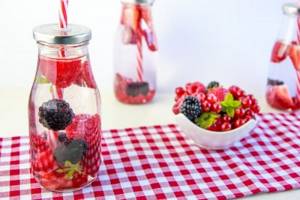
This is due to the fact that during exercise the athlete sweats a lot, and this threatens dehydration. Lack of fluid in the body reduces muscle strength, accuracy and balance, and these are the main components of a quality workout.
The choice of drinks is large: water, isotonic drinks, tea, coffee, caffeine-based drinks, juices, sodas, etc. For classes to be effective, you need to choose the right liquid and know which drinks are best to avoid.
Miracle drink
Green tea for an athlete is an excellent way to quench thirst, so many athletes drink it, including during training (both strength training and cardio).
This wonderful drink simultaneously performs several important functions for the body of an athlete:
- Tones, restores vigor, replenishes energy reserves;
- Helps launch the process of active fat burning;
- Green tea before training is a wonderful source of antioxidants (substances that slow down oxidation processes in the body, bind free radicals and prevent the development of cancer);
- The results of clinical studies prove the fact that athletes who regularly drink green tea after training get in shape faster, their muscles grow more actively, and their metabolism accelerates.
- This drink is a natural immunomodulator: it activates all the defenses of the human body and increases its resistance to viruses, infections, etc.
Clinically proven: daily consumption of green tea reduces the risk of developing vascular and heart pathologies by 75%.
This drink is a natural catalyst for “healthy” fat burning, so it is recommended to drink it not only for people who are struggling with extra pounds, but also for athletes who are “cutting.”
Experts say that 4 cups of this healing drink (approximately 600-800 ml) helps you get rid of 85 kcal, which corresponds to approximately 1 kg of “lost” fat per month.
Green tea has another unique property: it prevents the body from absorbing starch (this is a “fast” carbohydrate, which, when broken down, is transformed into energy, and then into fat).
Can I drink drinks containing caffeine?

Many athletes are convinced that drinking this improves their performance during exercise. A negative reaction after consuming caffeinated drinks occurs due to individual intolerance, excessive consumption or diseases for which they are contraindicated.
For caffeine cocktails to bring only benefits, you need to take them no more than 3-4 times a week and in a minimal dosage.
Rules for drinking the drink
Which pre-workout tea do you prefer? This wonderful drink may contain “invigorating” herbs – leuzea, ginseng, aralia and many others. They stimulate the body’s immune function, literally “charge” it with energy, and “accelerate” metabolism.
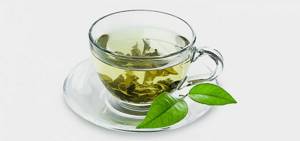
Green tea after a workout can be prepared with the addition of mint: for example, 1 tbsp. l. pre-crushed fresh or dry raw materials must be poured with a glass of boiling water, cover with a lid and leave for at least 10-15 minutes. When the mixture is ready, filter it, add a spoonful of sugar (or its substitute), and, if desired, lemon.
Ordinary tea made from green leaves is also suitable as an energy “regenerator”. It is combined with honey, ginger, lemon.
Athletes should drink green tea not only before or immediately after exercise. It is recommended to drink 4-5 glasses of the drink (without sugar) per day.
Tomatoes and muscle mass
Tomatoes contain large amounts of lycopene and quercetin. The first of the above substances is a powerful antioxidant and is very effective in the fight against cancer, and primarily against prostatitis. The greatest activity of lycopene is manifested in products made from tomatoes, for example, ketchup.
Quercetin is also a strong antioxidant that can prevent clogged blood vessels. In addition, due to the presence of anti-inflammatory properties, the substance accelerates recovery processes after training.
Post-workout nutrition
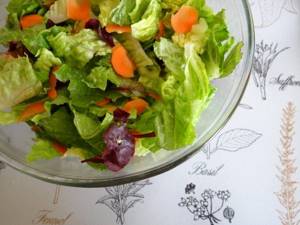
- Post-workout nutrition
- Why you shouldn't eat after a workout
- How to eat before training
After working out according to your program in the gym and returning home, a completely expected and healthy feeling of hunger arises. If you're worried that if you eat something after a hard workout, you'll gain back what you lost, then don't think about it. In the same way, you shouldn’t satisfy your hunger with the first thing that comes to hand. If you have a serious goal of losing fat or building muscle, then you need to be no less serious about what you eat. In order to get the maximum effect from your workout, you need to saturate yourself with calories with the right combination of proteins and carbohydrates. What you should avoid after training is junk food with fats and sugar.
As for proteins and carbohydrates, it should be noted that they must be consumed within the next thirty minutes after exercising. During this period, there comes a time when you can choose foods with a relatively high glycemic index, that is, consume simple carbohydrates. This is necessary to activate muscle growth and restore strength. We simply need carbohydrates for our muscles, because if we do not replenish their balance, then the destruction of muscle tissue will begin. As for proteins, after the gym it is recommended to drink a protein shake with fast protein. In this case, the rate of protein synthesis increases approximately three times when compared with fasting after exercise.
If your goal is not to gain muscle mass, but to lose weight, then the nutrition rules change slightly. In order to lose weight after exercise, you need to wait at least one hour before your next meal. This is easily explained by the fact that energy comes with food intake, eliminating the need to expend your own fats. The difference also lies in the fact that with the second option it is possible not to consume a protein shake. You need to remember that after physical training it is advisable to exclude everything that contains caffeine: coffee, cocoa, green tea and any chocolate bar. To see in more detail the picture of permitted nutrition, let’s take a look at what should also be avoided.
Is it possible to have coffee: how long before you should drink the drink
If there are no contraindications, the aromatic drink can be consumed. True, the athlete must comply with the dosage and regimen of its administration.
It is better to drink coffee half an hour before an intense workout. If you use the stimulant later, it simply will not have time to show its effect.
If you have heart disease, it is better to avoid coffee. Pathologies can be identified by the following symptoms: periodic heart pain, hypertension, rapid heartbeat.
The effect of the drink on the body
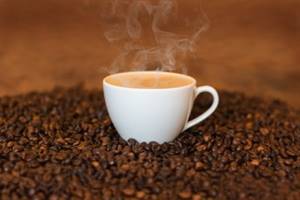
The components of coffee are quickly absorbed into the blood and affect many processes:
- Disturbs blood pressure. After 150 ml of drinking, the heartbeat slows down, and after 300 ml or more, it accelerates.
- Increases the secretion of hydrochloric acid. Coffee on an empty stomach threatens to irritate the mucous membranes, so it is better to drink it after a meal.
- Has a moderate diuretic effect.
- Invigorates, provokes the release of adrenaline.
This is interesting! Coffee promotes the production of the happiness hormone (dopamine). However, when its concentration increases excessively, sleep is disturbed, the person becomes restless and irritable.
Pros and cons
To understand whether you need to drink coffee or not, you need to weigh the pros and cons.
Pros of the aromatic drink:
- Increases endurance before exercise.
- Reduces post-workout pain.
- Improves reaction and attentiveness.
- Speeds up metabolism, promotes weight loss.
- Saturates the body with useful substances: potassium, magnesium, sodium, B vitamins, etc.
- Provokes addiction if used frequently.
- Reduces blood flow to the heart.
- Slows down the absorption of fluid from the intestines, causing dehydration and digestive disorders.
If you have heart problems or are hypersensitive to caffeine, then avoid this drink in favor of strong tea.
Properties of tea during exercise
Doctors allow drinking the drink during training, as it has many beneficial properties.
- The tea contains catechins, which will help you burn fat faster and achieve an ideal figure.
- The drink contains beneficial caffeine tannate. This substance significantly increases the endurance of an athlete. In addition, tannate helps to quickly absorb glucose in our muscles and recover after heavy exercise.
- Tea gives gradual vigor and allows you to exercise for a long time. But coffee will bring too much energy, which will be dangerous for our heart.
Caffeine and sports
Caffeine is an alkaloid that activates the central nervous system. Sports research has proven that caffeine is recommended for athletes before strenuous exercise, such as long-term strength exercises, cycling, and running. Athletes who drank caffeinated drinks had increased endurance and improved muscle function compared to those who drank water.
The best source of caffeine is black or green tea. This substance is contained in energy drinks, but it is not recommended to consume them often, as the likelihood of stomach diseases increases.
Myths and truth
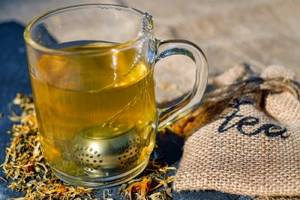
Caffeine is found in many drinks, so it's important to understand what it is. To do this, you can study several facts and myths about caffeine:
- It has a positive effect on memory – it’s true.
- It is a myth that espresso contains more caffeine than freshly brewed coffee. The content of this substance in a cup of coffee is about 225 mg, and in espresso it is about 70 mg.
- It increases performance – it’s true.
- Promotes dehydration - a myth. This substance has a diuretic effect, but removes only the volume of liquid that you consumed when pampering yourself with a cup of tea or coffee.
- Speeds up the reaction - true.
- The alkaloid is present only in coffee - a myth. As already mentioned, caffeine is found in tea, energy drinks, cocoa, various dishes, medications and confectionery products.
- It improves your mood – it really does.
- Caffeine helps overcome hangovers - a myth. This substance does not lower the level of alcohol in the blood, but only gives vigor.
- Increases blood pressure - true. For this reason, it is better for people with hypertension to avoid caffeine-containing drinks.
- Caffeine acts as a drug - a myth. This substance is addictive only in people who use it frequently and in large doses, and the negative symptoms soon disappear after withdrawal.
Based on this, with moderate caffeine consumption, the health threat is minimal.
Benefits and harms
| The beneficial properties of caffeine can be used in sports | Negative effects of caffeine |
|
|
To test your response to caffeine, drink a small dose of caffeine before exercising and then monitor how you feel. If negative reactions occur, avoid drinking anything containing this substance.
Dosage and rules of use
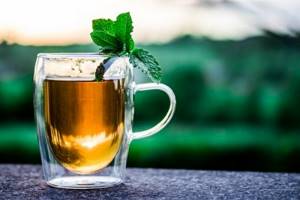
To experience the positive effects of caffeine, you need to follow these rules:
- The average dose of the alkaloid before intense exercise is from 150 to 500 mg.
- The maximum daily dose of the substance is 1000 mg, and a single dose is 400 mg.
Carefully! Excessive consumption of caffeinated drinks increases the likelihood of sleep disturbances, anxiety, headaches, nausea, breathing problems and heart rhythm problems. Sometimes convulsions occur, speech and thinking are impaired.
To avoid addiction, give up coffee for about a week every 14 days. Thus, the body will be cleansed of the stimulant, and the receptor cells will adequately perceive it.
On the subject: Nissan Almera throttle training
How should athletes drink tea correctly?
To get the maximum effect from the drink and from physical activity, you need to follow a number of simple rules:
- Be sure to drink your tea warm. Then it will be better absorbed and will bring maximum healing effects.
- Before training, you can drink 200 ml of black tea 20 minutes before training. Add honey to your drink. Tea will help you recharge your energy and effectively perform physical exercises.
- During training, you can drink a small amount of tea. Drink it every 15-20 minutes, 100 ml. It is advisable to drink tea in small sips, slowly, without haste.
- Trainers advise that after physical exercise, be sure to drink another mug of tea with honey. The drink should be warm. It will fill the body with carbohydrates that were used up during training.
Consequences of excessive fluid intake
To date, there have been recorded deaths associated with consuming too much water. Among those who died from so-called water intoxication were athletes who drank excessively during exercise. In this situation, the kidneys cannot cope with the excess fluid, so the salt content in the blood becomes too low.
This leads to increased intracranial pressure, resulting in acute headache. If the volume of liquid drunk was too large, the person faces hyponatremia (water-electrolyte imbalance).
The benefits of green tea for training
It is green tea that helps to quickly quench your thirst during physical activity. It is often used by athletes to replenish energy reserves and train even more. Doctors recommend drinking one cup of green tea before training. It supplies the body with antioxidants. These substances prevent the appearance of cancerous tumors in the body.
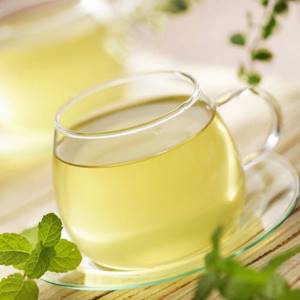
Experts have noted that drinking tea after a workout helps build muscle faster and speed up metabolism. Moreover, the drink effectively heals injuries and stretch marks after training and allows you to quickly get in shape.
Doctors advise all athletes to drink green tea, as it quickly increases the body's immunity. It is especially good to drink the drink in winter and autumn, when there is a risk of getting the flu or a cold. If you drink one cup of green tea a day, then you will not encounter heart and vascular diseases.
The drink burns extra pounds amazingly, so it should be consumed right at the time of training. Doctors noted that from 4 cups of tea you can lose more than 90 extra calories during exercise. The drink prevents harmful starch from being absorbed, which later turns into fat.
How should athletes drink green tea?
You can add ginseng, aralia and leuzea herbs to the drink. This composition will better invigorate the body and set you up for an active workout.
Drink green tea mostly after your workout. For the best healing effect, add mint to the drink. To make delicious tea, pour 1 tbsp. dry leaves with a glass of boiling water. Leave the mixture for 15 minutes. Strain the tea, let it cool slightly and add honey. To enhance the beneficial properties, you need to drink green tea with lemon and ginger.
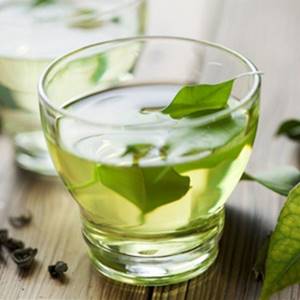
Athletes can drink the drink not only during training. It is best to drink green tea 5-6 times a day.
You learned that teas can be drunk before and after training, as well as during physical activity. We told you what beneficial properties tea drinks have specifically for athletes. You will be able to lose excess weight faster, build beautiful muscles, get extra energy and enjoyment from training.
Is it harmful to drink cold water?
Many sports people say that cool liquid stimulates the body and gives energy. In addition, there is a myth that drinking cold water after a workout speeds up weight loss. But this practice is too dangerous for the cardiovascular, circulatory systems and gastrointestinal tract.
The fact is that during training, and also some time after it, the blood thins and the blood vessels dilate. If you drink ice water, your body will experience severe stress. This will lead to a sharp narrowing of blood vessels and involuntary contraction of the muscles of the digestive system. Subsequently, drinking cold water during and after sports activities can lead to serious problems.
As for runners, in this case we can talk about a decrease in endurance. Therefore, if you are participating in a marathon, you should reconsider your attitude towards water during training. If you run for the purpose of losing weight solely for yourself, then you are allowed to drink water both during the workout and after it. When you return home, you can add honey or lemon juice to your drink.
After fitness training, you should drink only clean water - no hot coffee or tea, or honey drinks. If you drink protein, then the next portion of the fat-burning cocktail should be taken only 15–20 minutes after a sports activity.
aveslim.ru
